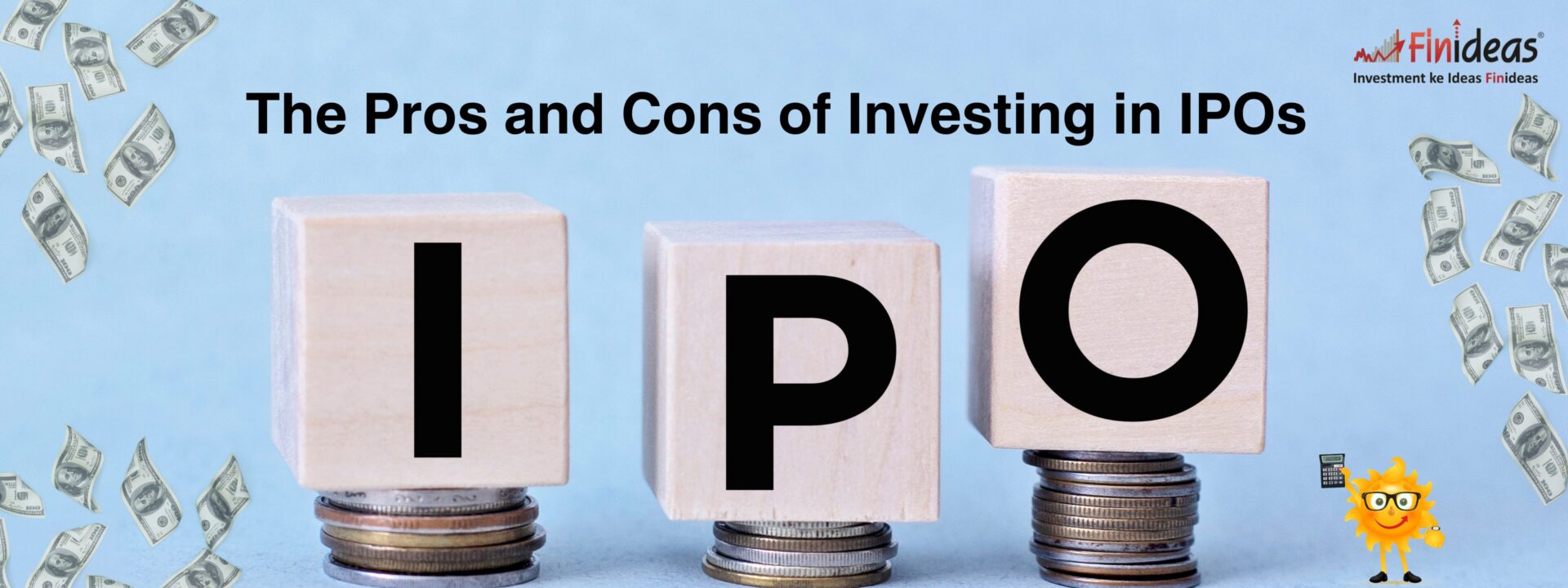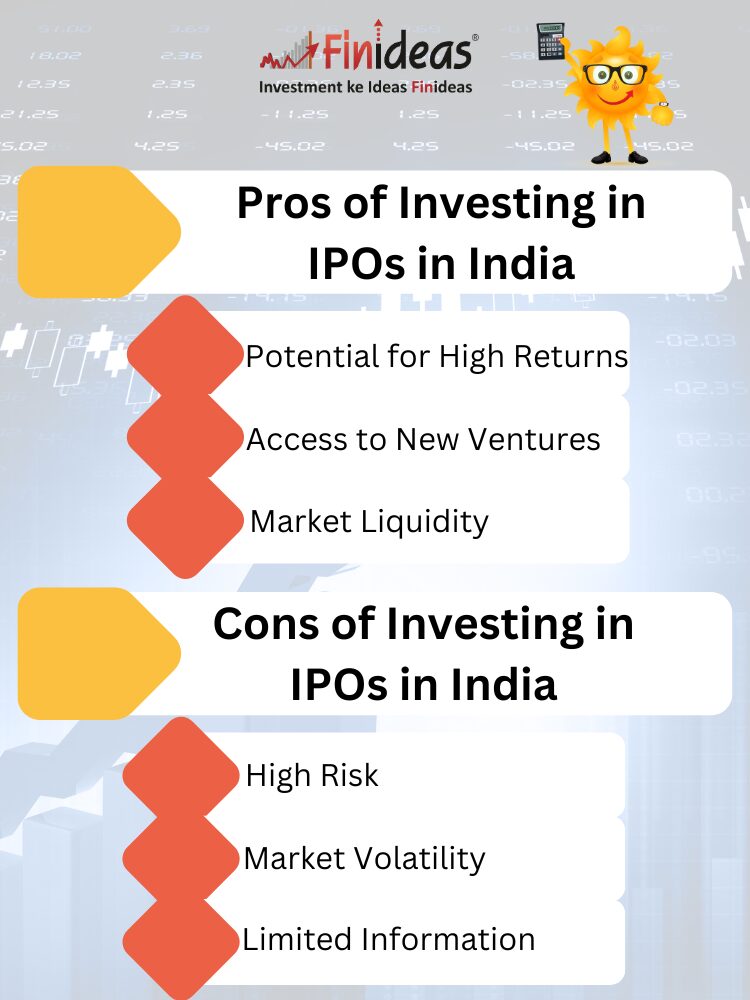The Pros and Cons of Investing in IPOs
As the Indian market witnesses a surge in Initial Public Offerings (IPOs), investors are faced with the challenge of navigating the complexities and uncertainties surrounding these investment opportunities. While IPOs hold the promise of high returns and access to new ventures, they also pose significant risks that demand careful consideration. In this blog, we delve into the pros and cons of investing in IPOs in the Indian context, aiming to equip investors with the knowledge needed to make informed decisions amidst the excitement of IPO launches.
Introduction:
The surge of Initial Public Offerings (IPOs) in the Indian market presents investors with both opportunities and challenges. With the lure of potential high returns and the chance to tap into new ventures, IPOs attract investors eager to ride the wave of emerging companies entering the public domain. However, amidst the excitement lies a maze of complexities and uncertainties that investors must navigate. This blog aims to dissect the pros and cons of investing in IPOs in the Indian market, shedding light on the risks and rewards that accompany these coveted investment opportunities.
Pros of Investing in IPOs in India:
Potential for High Returns:
IPOs offer the tantalizing prospect of significant returns, especially for investors who get in early on promising companies poised for growth.
Access to New Ventures:
Participating in IPOs allows investors to gain exposure to new ventures and sectors that may have been previously inaccessible, thus diversifying their investment portfolios.
Market Liquidity:
IPO shares are traded on stock exchanges, providing investors with liquidity and the ability to buy or sell shares quickly as market conditions change.
Pre-IPO Opportunities:
Some IPOs offer pre-IPO placements or preferential allotments to institutional investors, enabling them to secure shares before the general public, potentially at a lower price.
Transparency and Disclosure:
Companies going public are required to disclose financial information and other pertinent details, providing investors with transparency and insights into the company’s operations.
Cons of Investing in IPOs in India:
High Risk:
Investing in IPOs carries inherent risks, as many newly listed companies lack a proven track record and may face uncertainties regarding their future performance.
Market Volatility:
IPOs are often subject to market volatility, and their performance post-listing can be unpredictable, leading to potential losses for investors.
Limited Information:
Assessing the long-term viability of IPOs can be challenging due to limited historical financial data, making it difficult for investors to make informed decisions.
Lock-in Periods:
Some IPOs come with lock-in periods during which investors are restricted from selling their shares, limiting liquidity and flexibility.
Pricing Uncertainty:
IPOs can be susceptible to underpricing or overpricing, impacting the initial returns for investors. Underpricing may result in missed opportunities, while overpricing could lead to losses.
What criteria do you prioritize when evaluating whether to invest in an IPO, and how do you mitigate the associated risks? Do Comment Down Below
Also If you are someone who believes in long term investment makes a huge difference then you must check out Index Long Term Strategy.
Conclusion:
Investing in IPOs in the Indian market presents a tantalizing yet challenging proposition for investors. While IPOs offer the promise of high returns and access to new ventures, they also come with significant risks and uncertainties. By carefully weighing the pros and cons discussed in this blog and conducting thorough due diligence, investors can make informed decisions to navigate the complexities of the IPO market effectively. As the Indian market continues to evolve, understanding the nuances of IPO investing is essential for investors seeking to capitalize on emerging opportunities while managing associated risks.
Happy Investing!
This article is for education purpose only. Kindly consult with your financial advisor before doing any kind of investment.


